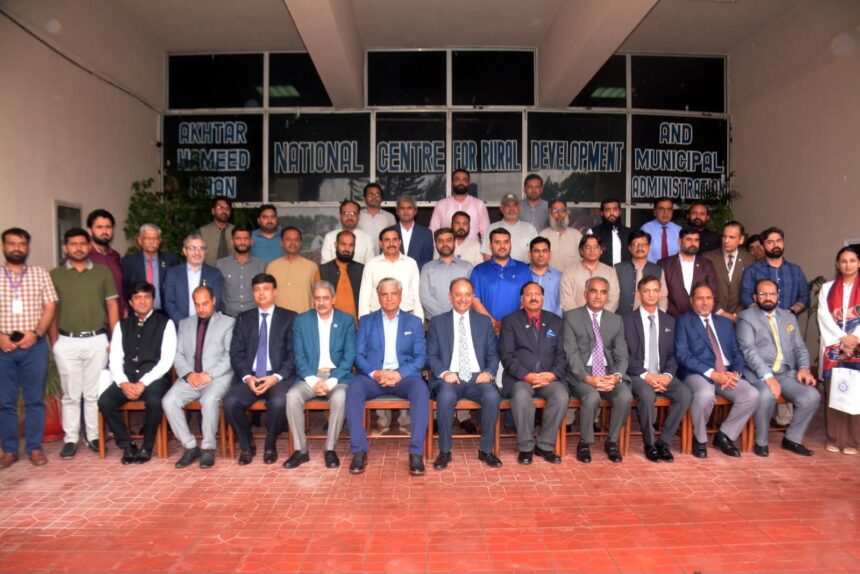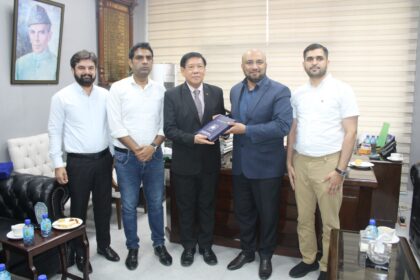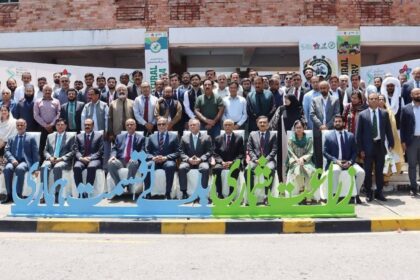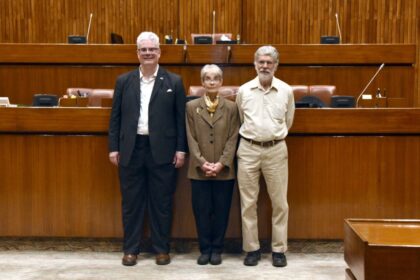**Experts Stress Community Empowerment in Indus Water Treaty Policy Dialogue**
A high-level policy dialogue on the Indus Water Treaty, organized by the Rural Development Foundation at the National Commission of Rural Development Hall, brought together policymakers, civil society leaders, and water experts to address sustainable and inclusive water governance in Pakistan. Social development expert Syed Ishtiaq Gilani was a featured guest speaker, highlighting the critical role of local communities and civil society organizations (CSOs) in resolving Pakistan’s mounting water challenges.
Mr. Gilani spoke on “Empowering Local Communities and Civil Society through Water Association Collaborations,” emphasizing that effective water governance relies on grassroots participation and strong coordination between government and community actors. “Empowered communities are not a challenge to water governance—they are its foundation,” he stated. He further stressed that collaboration with water associations and civil society is essential for a sustainable, inclusive, and just water future.
To translate these principles into action, Mr. Gilani outlined seven key recommendations. First, he urged the integration of local water associations into government planning processes to ensure that community voices inform policy decisions, budgeting, and implementation. Capacity-building for community leaders, particularly women, youth, and marginalized groups, was highlighted as vital for effective participation in water-related decision-making.
Strengthening coordination between CSOs and government agencies was also identified as a priority, especially for transparent monitoring of water quality and safety. Mr. Gilani recommended dedicating local budgets to the maintenance and upgrading of community-managed water systems, and providing technical assistance, such as access to engineers and tools, to improve system reliability. Enhanced collaboration and knowledge-sharing between villages and districts facing similar water challenges was also promoted.
Importantly, Mr. Gilani called for the formal recognition and legalization of water associations where necessary, enabling better coordination, accountability, and access to government support.
To illustrate the impact of empowered water associations, he cited the example of a village managing its community water tank—collecting small contributions for repairs, organizing awareness sessions, working with NGOs to install water filters, and coordinating infrastructure improvements with local authorities.
The session concluded with a consensus that communities managing their own water resources are better equipped to secure a climate-resilient, equitable future. Participants agreed that empowering local water associations is fundamental to addressing Pakistan’s water crisis and ensuring inclusive, locally driven solutions.











